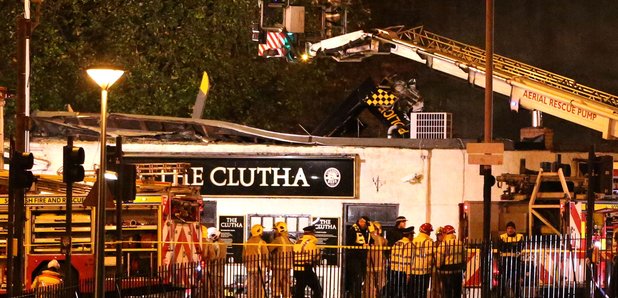Clutha Helicopter Pilot "received five low-fuel warnings"
9 April 2019, 15:15

The pilot of a police helicopter that crashed and killed 10 people received numerous low-fuel warnings, a fatal accident inquiry (FAI) has heard.
Pilot David Traill, two crew members and seven customers in the Clutha bar in Glasgow were killed when the Police Scotland helicopter crashed on to the roof of the building on November 29 2013.
Marcus Cook, senior inspector at the Air Accidents Investigations Branch (AAIB), confirmed there had been five warning notices recorded during the flight.
He also told how a Caution and Advisory Display (CAD) would have been functioning at the time.
This should have shown how much fuel was in the main tank, the left supply tank and the right supply tank.
There had been intermittent warnings recorded but they do not reveal when they were triggered.
Mr Cook said: "The low-fuel warning remained on for the remainder of the flight."
The FAI before Sheriff Principal Craig Turnbull is taking place in a temporary court at Hampden Park in Glasgow.
It also heard there are no plans to reopen the AAIB investigation into the crash.
Phil Sleight, deputy chief inspector of air accidents, told the Clutha FAI there had been new documents presented but none of them were considered new or significant enough.
The purpose of the FAI is to determine the cause of the deaths, establish whether they could have been prevented and enable the sheriff to make recommendations that could prevent fatalities in similar circumstances.
More than 100 people were at the Clutha Vaults pub when the helicopter, returning to its base on the banks of the River Clyde, crashed through the roof.
An Air Accidents Investigations Branch (AAIB) report published in 2015 found two fuel supply switches were off and the pilot did not follow emergency procedures after a fuel warning in the cockpit.
The Crown Office has previously said there is insufficient evidence for criminal proceedings.
A total of 57 Crown witnesses are expected to give evidence at the inquiry, down from a previous estimate of 85.
Police have taken more than 2,000 statements as part of preparations for the FAI, while the Crown has around 1,400 productions.
The inquiry is expected to involve around three months of evidence spread over six calendar months this year.






















